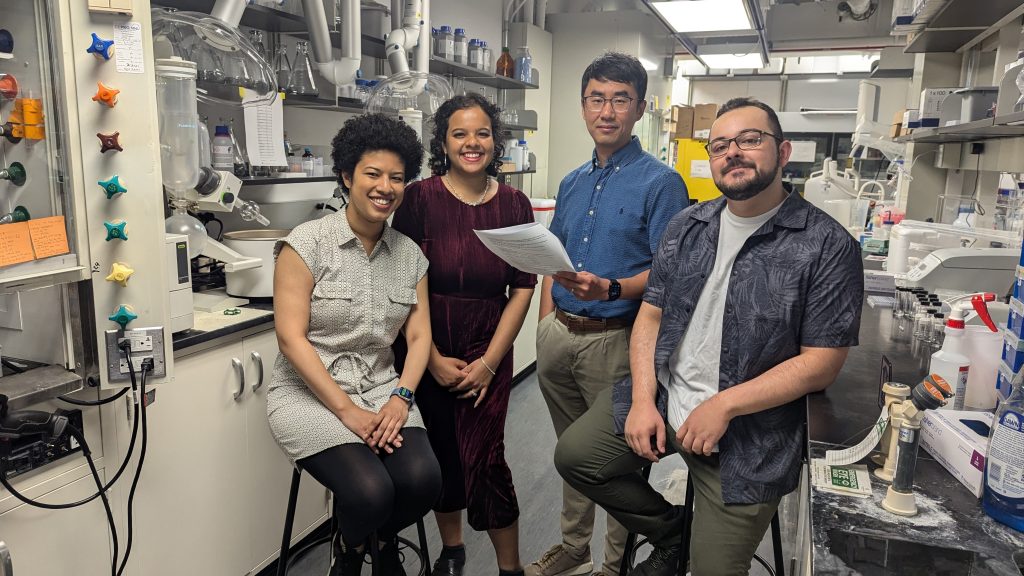
In a recent study published in Nature Chemical Biology, Chemistry of Life Processes Institute (CLP) member Xiaoyu Zhang and three CLP Predoctoral Program trainees, Ananya A. Basu, Assa Magassa, and Miguel A. Campos, made an important discovery that sheds light on the intricate mechanisms of targeted protein degradation (TPD), an emerging path to drug discovery.
Their discovery adds a new tool to the toolkit for drug development by enabling more precise targeting of specific proteins that drive cancer and other diseases.
“Instead of using small molecules as inhibitors to block protein function, we seek to develop small molecules that make disease-causing proteins disappear,” says Zhang, Assistant Professor of Chemistry. “One of the challenges in this approach is that we need to use these molecules to hijack an enzyme called E3 ubiquitin ligase.”
E3 ligase is a vital protein that keeps cells healthy by ensuring that old or damaged proteins are removed efficiently.
“The human genome has many of these, but so far, there are only a few E3s that are hijackable. In this paper, we reported a CRISPR activation screening method in which we discovered a new E3 ligase called FBXO22 that can support targeted protein degradation,” says Zhang.
Targeted protein degradation uses E3 ligase to create drugs that can specifically target and degrade disease-causing proteins. This approach is particularly useful for proteins that are difficult to target with traditional drugs.
“When we first identified the lead compound 22-SLF as a hit for FBXO22, it was hard to not get too excited before doing the rest of the validation work,” said Basu. “FBXO22 is a gene that is overexpressed in many cancers and the significance of this discovery was very apparent. Added to that was the potential for this to be the first published work of the lab and of my graduate career, which made it even harder.”
The discovery represents a significant leap forward in understanding the molecular mechanisms related to overproduction of the FBXO22 gene product (protein) underlying disease. In addition to offering a promising avenue for discovering other molecule degraders of disease-causing proteins, the study will provide valuable insights for future anti-cancer drug discovery.
“Ever since Ananya joined my lab, she has been working on this exciting project. After we saw this works efficiently, I involved more CLP trainees. Assa helped with the mass spec-based proteomics experiments, and Miguel contributed to the synthetic chemistry,” says Zhang. “What’s unique about the CLP training program is its integration of both chemistry and biology. In this paper, we really needed expertise from both fields.”
Main image (left to right): Assa Magassa, Ananya A. Basu, Xiaoyu Zhang and Miguel A. Campos.
Story and photo by Lisa La Vallee

